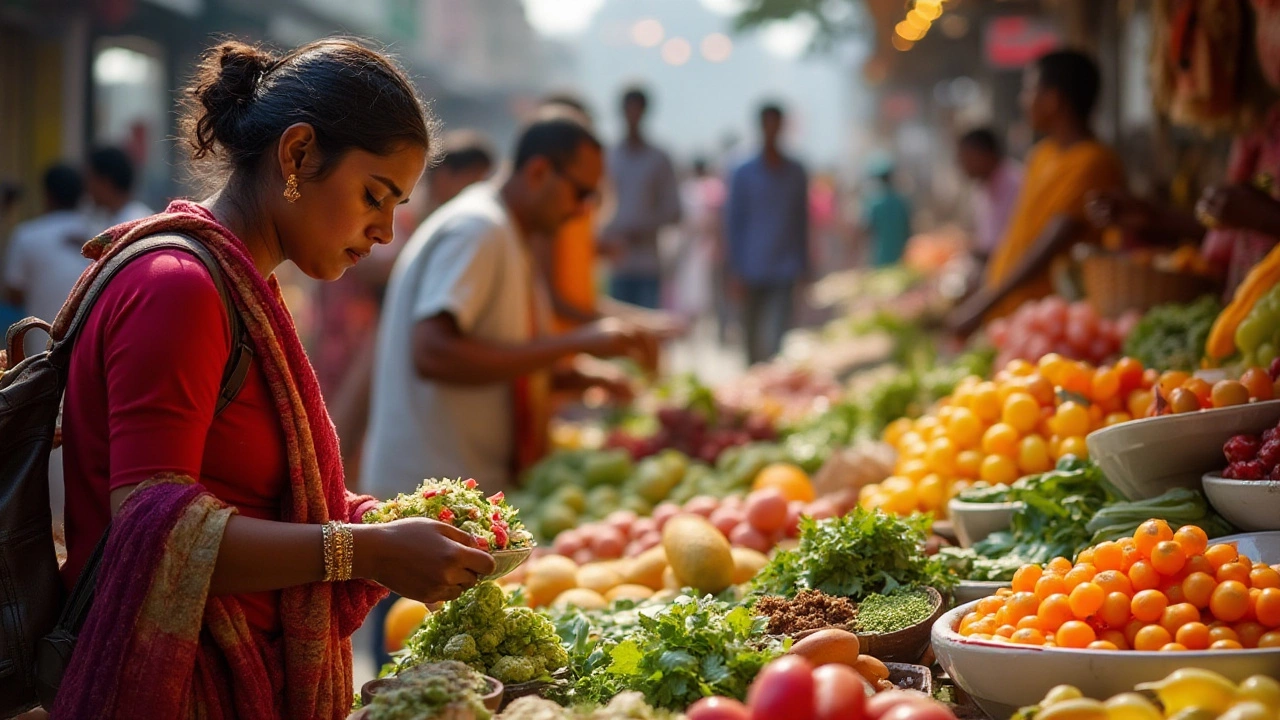SEARCH
Salad Safety: Simple Steps to Keep Your Greens Fresh and Healthy
Salads feel light, fresh, and perfect for any Indian summer, but they can also hide germs if you’re not careful. A few easy habits can make sure every bite is safe and tasty. Below are the most useful tricks you can start using today, no matter if you’re cooking at home or packing a travel lunch.
Cleaning and Prepping Your Greens
First thing – always wash your hands. A quick 20‑second rub with soap removes the microbes that could jump onto the leaves. Then give the greens a good rinse. Fill a bowl with cold water, submerge the lettuce, spinach, or arugula, and swish it around. Let the leaves sit for a minute; dirt and tiny insects float to the surface.
Don’t rely on a single rinse. After the first dip, lift the leaves, give them another quick shake, and rinse again. If you’re dealing with wilted or thick‑stalked veggies like kale, cut them into bite‑size pieces and soak a little longer. Adding a splash of white vinegar (about 1 tablespoon per 2 cups of water) helps kill extra bacteria without changing the flavor.
Dry the leaves properly. A salad spinner works best; spin for 30 seconds and then pat any remaining moisture with a clean kitchen towel. Wet leaves spoil faster, so a dry salad stays crisp longer and discourages bacterial growth.
Storing and Serving Safely
Once cleaned, store greens in an airtight container with a paper towel on top. The towel absorbs excess moisture, keeping the leaves from turning soggy. Place the container in the fridge’s crisper drawer where the temperature stays steady around 4°C (39°F).
Don’t keep a mixed salad for more than two days. If you need to prepare ahead, store the dressing separately and add it right before you eat. Dressings made with mayonnaise or dairy can spoil quickly, so keep them chilled and use fresh ingredients.
When you’re on the road, pack your salad in an insulated lunch box with a small ice pack. This keeps the temperature low and prevents the growth of harmful bacteria. If you’re eating out, ask the waiter if the greens are pre‑washed or if you can have a fresh wash with lemon water – many places are happy to oblige.
Watch out for cross‑contamination. Keep raw meats, eggs, and seafood away from fresh veggies. Use separate cutting boards and knives, or at least scrub them thoroughly between uses. A stray drop of raw juice can turn a healthy salad into a health risk.
Finally, trust your senses. If a leaf looks slimy, smells sour, or feels unusually soft, toss it. A small amount of bad greens can spoil the whole bowl. Regularly check stored salads and remove any wilted pieces to extend the life of the rest.
By following these straightforward steps, you’ll enjoy fresher, safer salads wherever you are – from a rooftop terrace in Delhi to a beachside picnic in Kerala. Keep it simple, stay clean, and let your greens shine.

Exploring Salad Safety for Travelers in South India
Traveling through South India offers a culinary adventure, but it’s essential to be cautious about what you eat, especially fresh produce like salads. Understanding local food safety practices can help prevent health issues during your trip. This article delves into the factors affecting the safety of eating salad in India, offering practical advice for enjoying fresh foods while minimizing risks. It also highlights specific precautions to consider to ensure a pleasant dining experience.
Continue reading